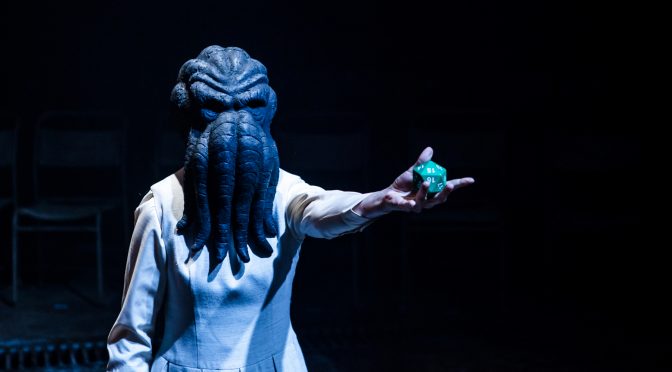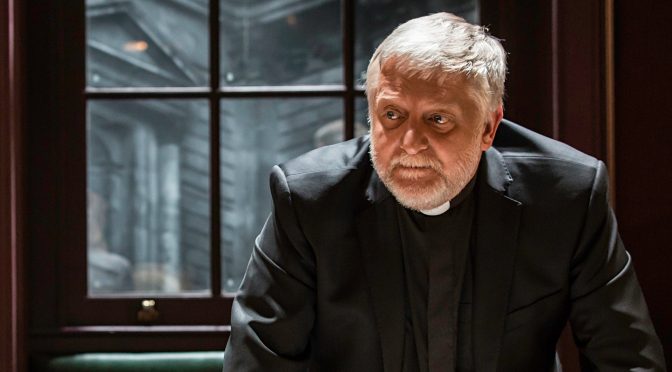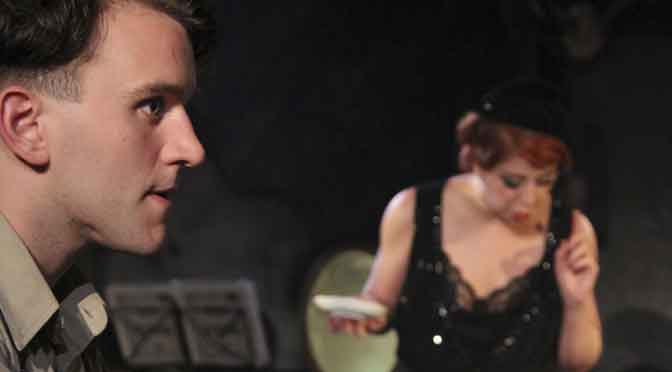Alistair McDowall’s loopy, plot-fuelled drama is structured like a Mobius strip, as we join a frightening search for a missing girl in a dystopian Manchester. Propelled by an HP Lovecraft role-playing game, which the characters all join and where it’s never clear who is in charge, what might have been confusing keeps you intrigued throughout.
The people of the sinister urban wasteland of Pomona fascinate as they search for obliteration in a variety of nasty ways. The cast is superb, including Nadia Clifford’s Ollie, looking for her sister, along with Sam Swann and Sean Rigby as two security guards getting deep into trouble. Rochenda Sandall plays a frightening brothel madam and Rebecca Humphries is outstanding in the most fully formed role of Fay. Presiding over all are Guy Rhys as Moe – a commanding presence despite his claim to be “neutral”, which is saying something since he spends the entire play in his underpants – and Sarah Middleton’s spooky Keaton, a part urban myth, part autistic anime character.
The idea is simple… deep down. A mesh of genres, including thriller and sci-fi, is skilfully woven with plenty of conspiracy theories to examine society’s complicity with moral injustice. Do we ask or ignore awkward questions? The play is a moral maze in more ways than one. I guess there had to be a dose of determinism as well, nicely embodied with gaming dice. Along with all the tension and supernatural overtones Pomona is plenty cryptic and could be frustrating, but instead it’s thoroughly entertaining.
Director Ned Bennett’s skill in bringing this often downright peculiar vision to the stage is remarkable. With a fraught atmosphere he avoids pretentiousness by bringing out the humour in the script and emphasising action. Above all, it’s a game that will keep you guessing. Short, sharp scenes along with creepy touches (much credit to designer Georgia Lowe) can be described as a nightmare that is a puzzle to you upon waking. And puzzles, after all, are great fun.
Until 10 October 2015
Photo by Richard Davenport



